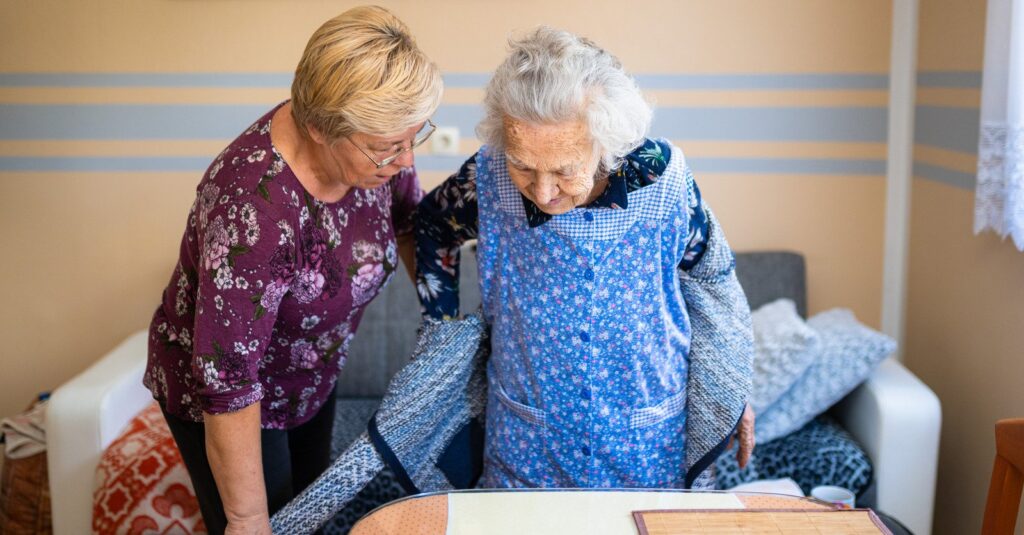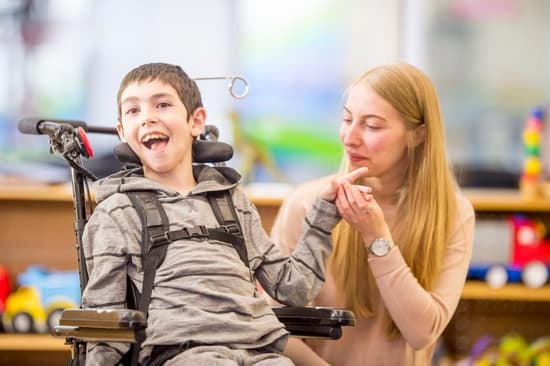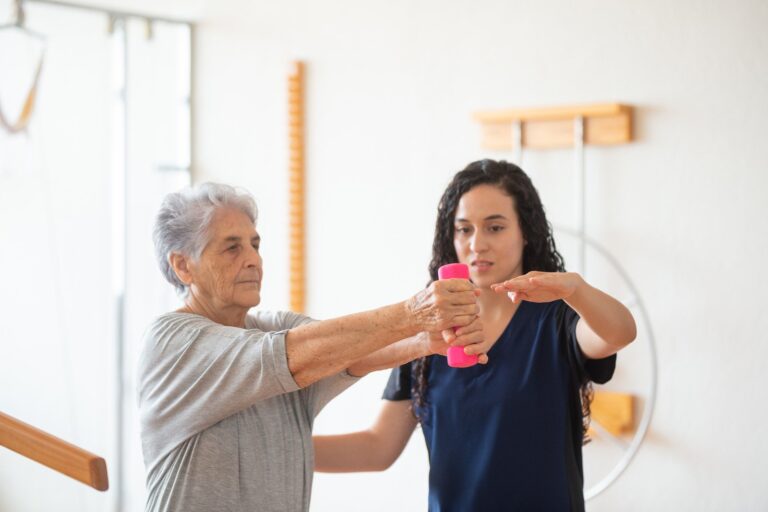In today’s fast-paced world, the challenges of managing daily living tasks can be overwhelming for individuals with disabilities, the elderly, or those recovering from illness. Innovative solutions are revolutionizing the support available, empowering individuals to lead more independent and fulfilling lives. These advancements, ranging from assistive technologies to tailored care plans, are bridging gaps and transforming lives.
Category: Independent Living Support
This blog fits into the Independent Living Support category as it focuses on enhancing individual autonomy through innovative tools and techniques.
Technological Innovations in Daily Living Support
Assistive Devices for Everyday Tasks
Innovative assistive devices simplify routine activities:
- Smart Home Devices: Voice-activated assistants like Alexa and Google Home help control appliances, set reminders, and provide accessibility for individuals with mobility challenges.
- Wearable Technologies: Devices such as fall detection sensors and health trackers ensure safety and monitor well-being in real-time.
Mobility Solutions
Advanced mobility aids like motorized wheelchairs and ergonomic walkers enable greater freedom of movement, reducing reliance on caregivers.
Communication Tools
For individuals with speech or hearing impairments, technologies like speech-to-text apps and hearing aids enhance communication and interaction.

Personalized Care Plans: A Cornerstone of Support
Customized Routines
Personalized care plans cater to individual needs, ensuring that daily living activities are manageable and stress-free.
- Tailored meal preparation schedules.
- Medication reminders aligned with health conditions.
Professional Caregiver Support
Innovative care models incorporate:
- 24/7 Assistance: On-demand support for emergencies.
- Specialized Training: Caregivers equipped with knowledge of new tools and methods.
Innovative Housing Solutions for Independence
Smart Homes
Equipped with automation, smart homes provide:
- Remote-controlled lighting and temperature settings.
- Automated door locks and security systems.
Accessible Living Spaces
Homes designed with accessibility in mind include:
- Wide doorways and ramps for wheelchairs.
- Adjustable countertops and sinks.
Enhancing Quality of Life Through Innovative Solutions
Mental Health and Emotional Well-being
Solutions like virtual therapy sessions and mental health apps promote emotional stability, addressing issues such as anxiety and depression.
Community Engagement
Technology facilitates participation in social groups and events through virtual platforms, reducing isolation and fostering connections.
Education and Skill Development
Online courses and skill-building apps enable individuals to learn new skills, boosting confidence and employability.
Overcoming Challenges in Implementing Innovations
Cost and Accessibility
While innovative tools are beneficial, their affordability and availability remain a concern. Efforts to provide subsidies and raise awareness can bridge these gaps.
Training and Adaptation
Learning to use new technologies can be daunting. Comprehensive training programs for users and caregivers ensure smoother transitions.
Future of Innovative Daily Living Support
AI and Machine Learning
Future developments include AI-powered tools that predict needs and offer personalized recommendations, further enhancing independence.
Collaborative Efforts
Partnerships between technology developers, healthcare providers, and policymakers will drive innovations that are inclusive and widely accessible.
Enhancing Social Interactions Through Innovation
Virtual Community Platforms
For individuals with limited mobility, staying socially connected can be challenging. Virtual community platforms enable:
- Participation in group activities, support groups, and hobby-based forums.
- Real-time interaction with family and friends through video calls and shared calendars.
Innovative Social Aids
Tools such as voice-enabled communication devices and language translators ensure that individuals can communicate effectively in various settings. These aids bridge communication gaps and reduce the sense of isolation.
The Role of Health Monitoring Systems
Smart Health Monitoring Devices
Devices like wearable fitness trackers and smart glucose monitors provide real-time health insights. Key benefits include:
- Early detection of health risks through continuous monitoring.
- Remote sharing of health data with medical professionals for better decision-making.
AI-Driven Health Alerts
AI-integrated health systems analyze patterns and issue alerts for:
- Irregular heart rates or oxygen levels.
- Missed medication schedules or dehydration risks.
Empowering Employment Through Technology
Workplace Accessibility Tools
Innovations like ergonomic office equipment and software with accessibility features allow individuals to:
- Perform tasks more efficiently.
- Participate in workplace discussions via assistive communication devices.
Skill Development Programs
Platforms offering virtual courses and certifications enable individuals to:
- Acquire job-relevant skills.
- Transition into meaningful employment opportunities.
The Environmental Impact of Innovative Living Solutions
Sustainable Smart Homes
Smart homes equipped with energy-efficient systems reduce the environmental footprint by:
- Utilizing renewable energy sources like solar panels.
- Automating lighting and heating to save energy.
Eco-Friendly Mobility Aids
Devices like electric wheelchairs and scooters with sustainable energy options are transforming the way individuals navigate their surroundings without harming the planet.
Transforming Education Through Assistive Innovations
Inclusive Learning Tools
Innovative technologies ensure that education is accessible for all by introducing tools like:
- Text-to-Speech Software: Converts written content into audio for those with visual impairments or learning difficulties.
- Interactive Learning Apps: Tailored apps help students grasp concepts in an engaging and accessible manner.
Virtual Classrooms
Virtual platforms foster inclusivity by allowing individuals to attend classes from anywhere. Benefits include:
- Participation in group discussions without physical barriers.
- Access to specialized tutors and tailored educational resources.
Fostering Independence in Financial Management
AI-Driven Budgeting Tools
Smart budgeting apps analyze spending patterns and provide personalized recommendations to:
- Manage daily expenses effectively.
- Save for future goals while considering medical or support needs.
Digital Payment Solutions
Innovations in payment methods, such as mobile wallets and voice-enabled banking, simplify financial independence. These solutions cater specifically to individuals with mobility or sensory challenges.
Advancements in Mobility and Navigation
Smart Navigation Apps
Navigation technologies are redefining mobility for those with disabilities:
- Apps providing step-free route planning ensure accessibility in public spaces.
- GPS devices designed for the visually impaired offer real-time auditory directions.
Electric Mobility Aids
Wheelchairs and scooters with features like auto-adjustable seating, obstacle sensors, and remote control enhance both comfort and safety.

Emotional Well-Being Through Innovative Therapies
Virtual Therapy Sessions
Access to mental health professionals has been revolutionized with online therapy platforms that offer:
- Flexible scheduling for counseling sessions.
- Privacy and convenience for individuals in remote areas.
Therapeutic Gadgets
Innovative devices like stress-relieving wearables, weighted blankets, and mindfulness apps promote mental well-being and reduce anxiety.
Safety Innovations for Daily Living
AI-Powered Emergency Response Systems
Smart devices equipped with AI detect emergencies such as falls or medical episodes and automatically notify caregivers or emergency services.
Remote Monitoring for Caregivers
Caregivers can track vital health data and ensure safety through apps that provide real-time updates, fostering peace of mind for both individuals and families.
Conclusion
Innovative solutions for daily living support are transforming lives, making independence achievable for all. From assistive technologies to personalized care plans, these advancements pave the way for a more inclusive and fulfilling future. By addressing challenges and embracing new developments, society can ensure that everyone, regardless of their circumstances, has the opportunity to thrive.







